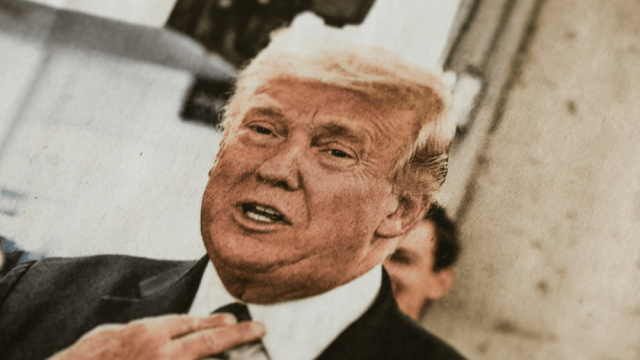Opinion: 'Doing business' at the White House has become a fool's errand

By Mark Kenny
A version of this article was originally published by The Canberra Times.
Anthony Albanese hopes to meet Donald Trump in Canada a week from now, with the odds improving that their first face-to-face encounter will occur away from the cameras.
From an Australian standpoint, this would be a win.
First, because in international affairs, the personality dimension is the only dimension Trump really understands.
Second, it is a win because the alternative of "doing business" at the White House has become a fool's errand.
In the latter category are the open-ended affairs in an Oval Office "tarted up to look like a Vegas gift shop" (as Maureen Dowd so brilliantly captured it) in which presidents Volodymyr Zelenskyy and Cyril Ramaphosa, respectively, were ambushed. Deliberately humiliated.
Such is the abandonment of comportment in this fast-infantilising super-power.
While not nailed down, the meeting in Canada could still be a full "bilateral", but even a shorter "pull aside" on the neutral ground of a G7 summit improves the likelihood of their talks being substantive. Trade will dominate with Australia still keen to gain tariff relief based on our ability to supply some 36 of the 38 critical minerals America seeks.
The focus on beef and biosecurity in recent days may have been overblown.
It is not just that Trump MKII prefers stagecraft over statecraft, it is that this president sees no distinction between the two.
Invite the cameras in and visiting leaders become mere extras, or worse, pinatas.
That this is an entirely unserious presidency in a time of unrivalled seriousness, is painfully obvious.
That a reality TV star and his bloviating defence secretary (poached from Fox News), are dictating the terms of a perilous global rebalancing without any demonstrable record, is downright dangerous.
The fact that other world leaders will not call out an inversion where government imitates entertainment, is potentially tragic.
Trump leads an administration ad hominem - i.e. modelled on him. Policy is policy because he thinks it. Or says it - sometimes both.
Internally, checks and balances are ignored. The broader US government has become coterminous with the White House. This involves an almost Soviet-style allegiance to presidential authority - an allegiance that tolerates breaches of the Constitution, attacks on courts, and wild changes of direction including flagrant retreats.
It also extends to denying entry to tourists and students whose social media history reveals negative reflections on his administration; dismissal of public officials considered unpatriotic; an open war on universities; and the demonisation of "bad history" - i.e. teaching about slavery and the dispossession of First Peoples.
Trump's 1776 Report released in the final days of his first term attacked what he called a "crusade against American history" by woke academics and journalists. He described the 1619 Project by The New York Times which focused on the year slaves were first transferred to Virginia colonies, as "toxic propaganda, ideological poison".
Externally, America's foreign policy has lurched into similar personal paroxysms at the cost of nuance, history, respect for alliances, and any grounding in multilateralism.
In short, it too mirrors Trump's I-focused perspective.
Trump has not grown in the job but rather has managed to shrink its position description to reflect his unique brand of towering ego and incuriosity.
Uninterested in either ideas or policy, he sees complex global problems through leaders and deals. Of Zelenskyy he said a fortnight back, "everything out of his mouth causes problems, I don't like it, and it better stop".
He never wonders what an American president would or should do were her/his country invaded? Why? Presumably, because this is not America and therefore beyond his self-centric imagining. Thus, threats to the post-war international settlement, liberal democracy, the rule of law, Ukrainian sovereignty - none of these abstract values occupy his mind.
If the primary frustration for Trump is Zelenskyy's stubborn refusal to hand over part of his country to an illegal aggressor, the telling phrase for us is Trump's "I don't like it".
Turning to the root cause of this colossal tragedy, Trump said of Putin, "I've known him a long time, always gotten along with him, but he's sending rockets into cities and killing people, and I don't like it at all".
Remember, this war was going to be resolved on day one - again, based exclusively on his personal relationships.
That day-one bravado has now deflated to this: "Sometimes you see two young children fighting like crazy, they hate each other, and they're fighting in a park, and you try and pull them apart ... sometimes you're better off letting them fight for a while and then pulling them apart."
This pearl of inanity, which simultaneously infantilised the warring leaders, simplified their complex perspectives and breezed over thousands of civilian deaths, came in another farcical Oval Office performance - this time with a trapped German Chancellor, Friedrich Merz.
The new German leader who is strongly pro-Ukraine had leaned on the president for the kind of decisive leadership America showed in WWII, noting that they were talking on the very eve of the 81st anniversary of the D-Day landings.
"That was not a pleasant day for you," Trump interrupted smugly, prompting Merz to point out it had led to "the liberation of my country from Nazi dictatorship".
No harm done. American exceptionalism always has another face, the country beyond embarrassment.
Mark Kenny is the Director of the ANU Australian Studies Institute and host of the Democracy Sausage podcast.








